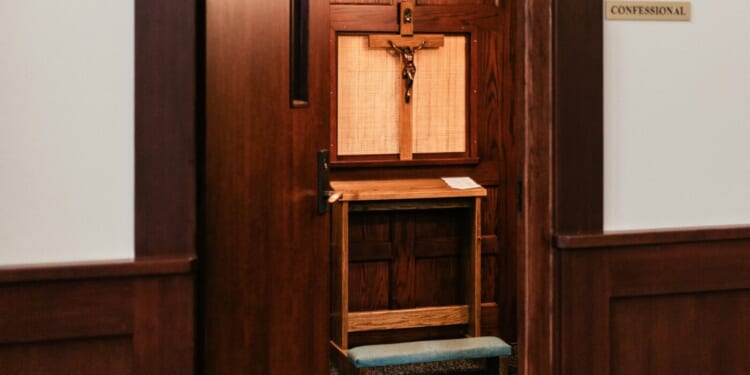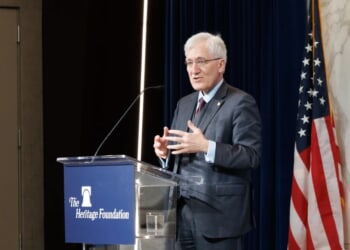To the modern ear, the idea of confessing one’s sins aloud to a priest may sound odd, even archaic. Why not just confess silently to God? The short answer is simple: because Jesus Christ, our Lord, set it up this way. The longer answer involves a tapestry of biblical theology, apostolic tradition, and the lived witness of the saints. Confession isn’t merely a human invention—it’s a divine invitation to healing. The Gospel Reading for the 28th Sunday in Ordinary Time gives insight to this Divine Sacrament.
Authority Given by Christ
The number ten in the Bible often symbolizes fullness and divine authority. God gave Moses ten commandments, a summary of the moral law written by the very hand of God. In the Book of Revelation, a beast with ten horns represents complete dominion and worldly power. In the Gospel of Matthew, chapters 8 and 9 recount ten miracles Jesus performs—healing the sick, calming storms, casting out demons—all signs of divine authority over body, nature, and soul. Then, in Matthew chapter ten, the evangelist writes, “Jesus summoned his twelve disciples and gave them authority” (Mt. 10:1).
This authority wasn’t vague or symbolic. It was real and active. Jesus, the divine physician, not only healed but passed on His power to others. He delegated. He shared. And this includes the power to forgive sins.
“Show Yourself to the Priest”
This Sunday’s Gospel tells the story of ten lepers who cry out to Jesus for mercy. He eagerly heals them—but he doesn’t stop there. He instructs, “Go and show yourselves to the priests” (Lk. 17:14). Why the priests? In the Old Covenant, the priest was the one who declared a person clean, restoring them to the community and temple worship. Jesus honors and transforms this tradition.
The story of healing doesn’t end there. After His Resurrection, Jesus breathes on the Apostles and says, “Receive the Holy Spirit. Whose sins you forgive are forgiven, and whose sins you retain are retained” (Jn. 20:22-23). This is not mere ceremony. This is Divine power entrusted to men—specifically, to the successors of the Twelve Apostles.
The Ministry of Reconciliation
St. Paul affirms this in his Second Letter to the Corinthians: “All this is from God, who through Christ reconciled us to himself and gave us the ministry of reconciliation” (2 Cor. 5:18). Reconciliation—what we now call Confession or Penance—is not just personal therapy. It is sacramental. The Church, through her priests, acts in the person of Christ to bring about healing and grace.
St. James gives us a clear pastoral instruction: “Therefore, confess your sins to one another and pray for one another, that you may be healed” (Jas. 5:16). The Greek word for “elders” in this passage is presbyteroi, from which we derive the English word “priest.” The early Church understood this not as a metaphor, but as a real practice.
What the Saints Have Said
The saints, those most intimate with the ways of God, have always cherished this sacrament.
St. John Vianney, the patron saint of parish priests, said: “When we go to confession, we should accuse ourselves of our worst sins first, and of those which we are most ashamed; because the devil hides them, and makes us ashamed to confess them.”
St. Augustine boldly declared: “Let no one say: I do penance privately, I do penance before God. Is it then in vain that Christ has said, ‘What you shall loose on earth shall be loosed in heaven’?”
St. Faustina, the apostle of Divine Mercy, wrote in her diary: “When you go to confession, to this fountain of My mercy, the Blood and Water which came forth from My Heart always flows down upon your soul and ennobles it.”
And Pope St. John Paul II once remarked: “The sacrament of Penance is one of the Church’s most beautiful and consoling gifts. It restores and strengthens the grace of our Baptism, and enables us to return to the joy of our first encounter with Christ.”
In confession, the priest is not an obstacle to God. He is a bridge. He listens not as a mere man but in persona Christi—in the person of Christ. He bears witness to your sorrow, offers counsel, and pronounces the saving words: “I absolve you from your sins.” In that moment, it is Christ who speaks.
Come Back Home
If it’s been a while since your last confession, consider this your invitation. The Lord is waiting—patient, merciful, and ready to forgive. His authority, passed on to the Church, is not to shame but to heal.
As the Catechism beautifully teaches:
The confession (or disclosure) of sins, even from a simply human point of view, frees us and facilitates our reconciliation with others. Through such an admission, man looks squarely at the sins he is guilty of, takes responsibility for them, and thereby opens himself again to God. (CCC 1455)
Christ is calling. The confessional is not a courtroom. It is a hospital for the soul. Run to it—and be made new.
Photo by Grant Whitty on Unsplash










